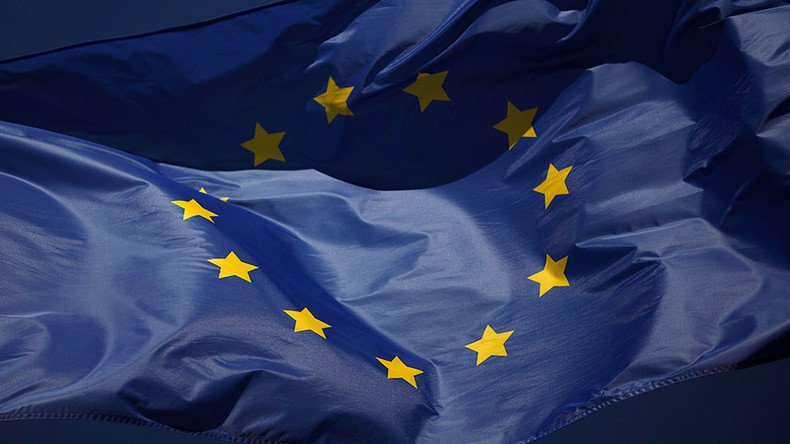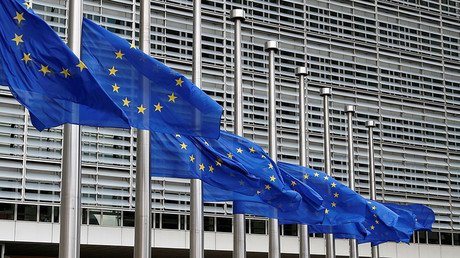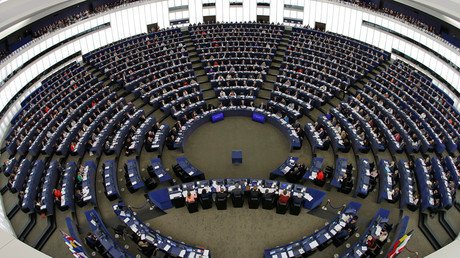EU launches new ‘single resource’ website to counter ‘Russian propaganda’

An EU agency, specifically tasked with fighting what the West terms ‘Russia propaganda,’ has launched its new website to provide Europeans with “a single resource” to “enlighten” them about alleged “pro-Kremlin propaganda.”
The site was launched in English, German and Russian. It’s part of the ongoing “EU vs disinformation” campaign waged by the EU’s East Stratcom Task Force.
“Today we launch our new website www.euvsdisinfo.eu, providing you with a single resource on addressing the challenge of pro-Kremlin disinformation,” a statement on the website says.
“This website is part of a campaign to better forecast, address and respond to pro-Kremlin disinformation,” it says further.
The webpage features a “searchable database of disinformation cases” and “interactive statistics” on the number of alleged disinformation cases, as well as on countries that are most frequently mentioned in what is perceived as “pro-Kremlin propaganda.”
Even though a disclaimer on the page says the Disinformation Review “focuses on key messages carried in the international information space, which have been identified as providing a partial, distorted or false view or interpretation and/or spreading key pro-Kremlin messaging,” it seems to be focusing solely on the latter.
The group also runs pages on Facebook and Twitter that are also aimed at revealing “manipulation and disinformation in pro-Kremlin media.” Its Facebook page called “EU vs Disinformation” was created in June 2016 while its “EU Mythbusters” Twitter page has been active since November 2015.
Both social media pages use slogan that bears a striking resemblance to RT’s “Question More” catchphrase. “Don’t be deceived. Question even more,” it reads.
Just a few hours after launching the campaign, our website is down🙄 We are sorry about that and we are trying to solve the issue ASAP 🔧
— EU Mythbusters (@EUvsDisinfo) September 12, 2017
The East Stratcom Task Force was formed as part of the European External Action Service (EEAS) in early 2015 to tackle what the EU perceives as Russian propaganda. The EU said the group was tasked with countering disinformation about the Union and its policies in the “Russian language space.”
The EU’s “eastern European partners” – the former Soviet republics of Armenia, Azerbaijan, Belarus, Georgia, Moldova and Ukraine – were designated as their target audience.
In early 2017, the group received extra personnel and additional funding. The move came ahead of national elections in several European countries, including France, the Netherlands and Germany.
In November 2016, the European Parliament also adopted a non-legislative resolution which called for the EU to “respond to information warfare by Russia” and listed RT and the Sputnik news agency as one of the most dangerous "tools of hostile propaganda."
Written by a Polish member of the European Conservatives and Reformists (ECR) group, Anna Fotyga, the report alleged that Moscow aims to "distort the truth, provoke doubt, divide the EU and its North American partners, paralyze the decision-making process, discredit the EU institutions and incite fear and uncertainty among EU citizens."
The document went even further, placing Russian media organizations alongside terrorist groups such as Islamic State (IS, formerly ISIS/ISIL).
President Vladimir Putin said at the time that the EU Parliament's resolution demonstrates "political degradation" in regard to the "idea of democracy" in the West.
The move was also criticized by the Russian envoy to the EU, Vladimir Chizhov, who said the EU tries to “erase the perception of Russia as an indispensable part of the European civilization from the public conscience” and to “create a wall of alienation and mistrust between our peoples.”














